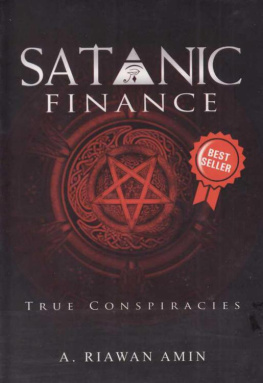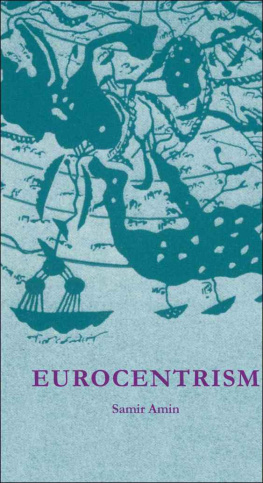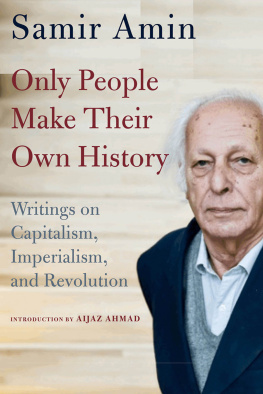Henry Kyemba - State of Blood: The Inside Story of Idi Amin
Here you can read online Henry Kyemba - State of Blood: The Inside Story of Idi Amin full text of the book (entire story) in english for free. Download pdf and epub, get meaning, cover and reviews about this ebook. year: 1977, publisher: Putnam Pub Group, genre: Detective and thriller. Description of the work, (preface) as well as reviews are available. Best literature library LitArk.com created for fans of good reading and offers a wide selection of genres:
Romance novel
Science fiction
Adventure
Detective
Science
History
Home and family
Prose
Art
Politics
Computer
Non-fiction
Religion
Business
Children
Humor
Choose a favorite category and find really read worthwhile books. Enjoy immersion in the world of imagination, feel the emotions of the characters or learn something new for yourself, make an fascinating discovery.
- Book:State of Blood: The Inside Story of Idi Amin
- Author:
- Publisher:Putnam Pub Group
- Genre:
- Year:1977
- Rating:5 / 5
- Favourites:Add to favourites
- Your mark:
- 100
- 1
- 2
- 3
- 4
- 5
State of Blood: The Inside Story of Idi Amin: summary, description and annotation
We offer to read an annotation, description, summary or preface (depends on what the author of the book "State of Blood: The Inside Story of Idi Amin" wrote himself). If you haven't found the necessary information about the book — write in the comments, we will try to find it.
State of Blood: The Inside Story of Idi Amin — read online for free the complete book (whole text) full work
Below is the text of the book, divided by pages. System saving the place of the last page read, allows you to conveniently read the book "State of Blood: The Inside Story of Idi Amin" online for free, without having to search again every time where you left off. Put a bookmark, and you can go to the page where you finished reading at any time.
Font size:
Interval:
Bookmark:
A STATE OF BLOOD
The Inside Story of
IDI AMIN
by Henry Kyemba
with a Foreword by Godfrey Lule, former Minister of Justice and Solicitor General of Uganda

oce books
A Division of Charter Communications Inc.' A GROSSET & DUN LAP COMPANY
1120 Avenue of the Americas New York, New York 10036
To all Ugandans: The history of Amin's rule will be an oral one. For this book I have drawn largely on my own memories. It is no more than a beginning. The memories of all Ugandans must contribute to a deeper understanding of our country's agony. I beg all those with experiences of Amin's terror to write them down and send them to me c/o Ace Books, 1120 Avenue of the Americas, New York, N.Y. 10036.H enry K yemba.
Copyright 1977 Paddington Press, Ltd.
All rights reserved. No part of this book may be reproduced in any form or by any means, except for the inclusion of brief quotations in a review, without permission in writing from the publisher.
ISBN: 0-441-78524-4
An ACE Book by arrangement with Paddington Press, Ltd. Designed by Richard Johnson
Cover photo by Patrick Chauvel-SYGMA First Ace printing: August 1977 Published simultaneously in Canada.
Printed in U.S.A.
Contents
Acknowledgment 4 Foreword by Godfrey Lule 5
A Dedication: In Memory of One Hundred Friends 9 Prologue: Decision 12
1. Roots of Evil 15
2. The Tyrant Emerges 39
3. Coming Chaos 60
4. Reign of Terror 108
5. My Country's Agony 128
6. Amin and His Women 145
7. Dora Bloch: Victim of Entebbe 166
8. "No One Is Sacred" 179
9. Escape 225
10. The Eyes of the World 238
11. How Long? 249
Chronology of Events 260 Maps 268
Appendix: The Letter That Led to the Archbishop's Murder 271
Postscript: For Fifty Who Fled 282
Index 284
(Photo SectionsFollowing Page 64 and Page 192.)
Acknowledgment
Many people have helped make this book possibleso many that I cannot name them all.
I am most deeply indebted to my familyTeresa, Elizabeth, Susan and Henry. Their courage and confidence during these very difficult days has been a great source of strength to me.
My special thanks go to John Man, who initiated this book and helped me to put it together in its present form. I will always value his friendship.
My gratitude also extends to Elspeth Purchase for her kindnesses and her editorial assistance; to the Purchase and Man families for their fortitude during an arduous month; to Peter and Alan, who encouraged me to speak out; to the Sunday Times, in particular Harold Evans and Russell Miller; to Sylvia Richards and Nicole Graves for all their commitment and typing help; John and Janet Marqusee of Paddington Press for their support and guidance; to Harriet McDougal of Ace Books for her professional help; and to Alan Burgess and Dorothy Schock of University College, Oxford. My thanks are also due to David Chipp, Susan Goldblatt, Helen Dunman and Rhodes House, Oxford.
Finally, I want to thank the community of Oxford. Following my escape from Uganda, Oxford provided a calm and secure haven in which I was able to write this book. It removed me from a constant sense of personal danger. Most important, it created an environment consistent with my pursuit of truth and justice.
Foreword
by Godfrey Lule
As Uganda's former Attorney General and Minister of Justice, I welcome this book by Henry Kyemba. It is the first extended, detailed, and authoritative statement revealing the true nature of Idi Amin's regime.
I have special reason to welcome it because I know, perhaps more than anybody, the humiliation of being asked to defend Amin's murderous acts before the world.
Four years ago, such a defense would not have seemed so unacceptable. Like other cabinet ministers, indeed, like the country as a whole, I at first gave Amin the benefit of the doubt. He had no formal education, we told each other, and he should be given time to learn. Perhaps he did not know what was really going on in the country, or perhaps he was not able to control it. I, like the other ministers, was prepared to forgive, and was determined to influence events. Only recently did I fully realize that I would never be able to do so.
By early 1977, there had been two reports accusing Amin of complicity in murderone by the International Commission of Jurists in 1973, and another, in 1975, by a Commission of Inquiry in Uganda itself.
The report of the International Commission of Jurists provided detailed evidence of murder of both officialsand ordinary individuals. It included a letter from the exiled Foreign Minister, Wanume Kibedi, who estimated that Amin's rule of terror had resulted in at least 100,000 dead.
The Uganda Commission of Inquiry report concluded that although there was no hard evidence indicating Amin's direct involvement in any one murder, there was evidence in plenty showing that his various terror units
6 A STATE OFBLOOD
had killed wantonly. It strongly implied, therefore, that
Amin would be directly responsible for any future killings.
This Commission had been set up as a whitewash operation on Amin's orders, but Amin had not bothered to check the brief that defines their powers; hence their unexpectedly tough findings. As soon as I told him what was in it, he suppressed it.
In February 1977, the UN Human Rights Commission was due to meet in Geneva. As part of their agenda, discussed in private session, they heard the evidence submitted by the Uganda Commission of Inquiry. Amin called me in and ordered me to defend him against any charges. "You go and deny everything," he said. "Say you don't know anything about the accusations." I could not, of course, make such a statement. I would not have been taken seriously. Instead I told the UN Commission that more time should be given for consideration of the report's allegations. This action was a great embarrassment to me; I avoided the press assiduously; I did not know how I could continue to serve Amin.
While I was in Geneva, I had two horrifying telephone conversations with Amin which clinched my decision to flee.
He called first to tell me of the deaths of Archbishop Janan Luwuum and two Cabinet ministers, Erinayo Oryema and Charles Oboth-Ofumbi. He said they had been arrested and killed "in a motor accident." I knew this could not be true; it was too ridiculous.
Then he laughed, smugly and conspiratorially, and said, "God has punished them."
In a second conversation, I mentioned to him that I understood I had been implicated in the "plot" with the archbishop. I told him this was nonsense. He agreed, and then said that he had seen another report accusing me of disloyalty, but had not believed it: "If I really thought you were plotting against me," he said, "you would not be in Geneva now; you would be dead."
He obviously made this assertion of faith in my loyalty to win my confidence. Not surprisingly, it only served to show me that if I returned I would be at the mercy of his arbitrary judgments. I feel sure 1 would never had gotten out of the Entebbe Airport lounge as a free man.
That was the turning point. 1 left a message with my family to leave Uganda; I flew to London and there, joined later by my family, retired into private life.
To my mind, those two phone calls came from a very evil man.
Henry Kyemba's book is most important because it reveals the full story of Amin's regime and personality. It is vital that the world understand clearly the true nature of the man who rules Uganda. For too long Amin has been considered a clown. Indeed, he is a clown, when he chooses. Face to face, he is relaxed, simple and charminghe seems incapable of wrongdoing or of sanctioning any crime. But this is no more than a fasade. He is at heart a manipulatorcharm and generosity are his two greatest weapons. He will say anything to win the affection of the person he is withbut thinks nothing of saying exactly the opposite to his next visitor. He kills rationally and coolly.
Next pageFont size:
Interval:
Bookmark:
Similar books «State of Blood: The Inside Story of Idi Amin»
Look at similar books to State of Blood: The Inside Story of Idi Amin. We have selected literature similar in name and meaning in the hope of providing readers with more options to find new, interesting, not yet read works.
Discussion, reviews of the book State of Blood: The Inside Story of Idi Amin and just readers' own opinions. Leave your comments, write what you think about the work, its meaning or the main characters. Specify what exactly you liked and what you didn't like, and why you think so.












